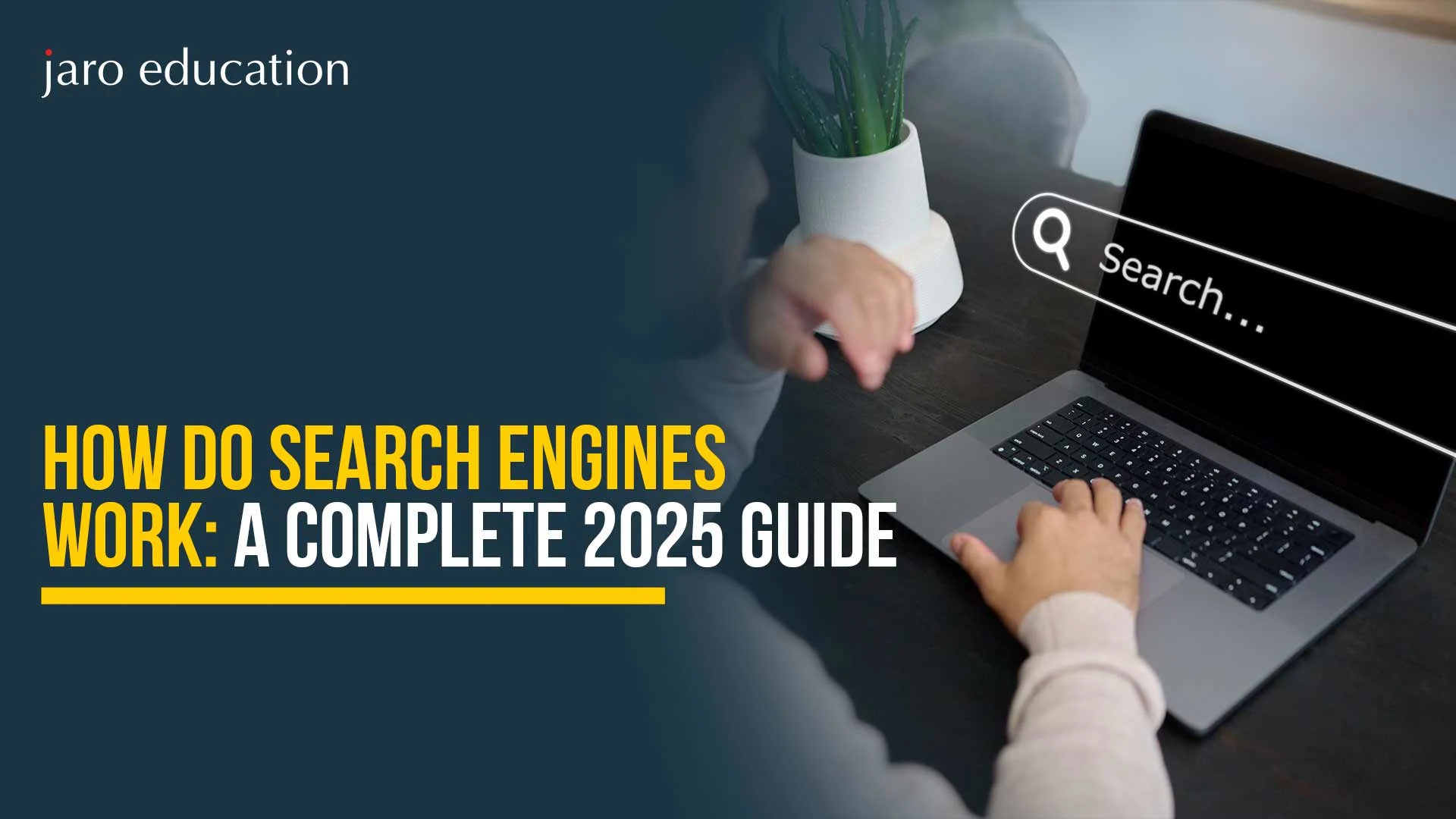How Do Search Engines Work: A Complete 2025 Guide

Table Of Content
- Why Understanding Search Engines Matters in 2025
- Breaking Down the Working of Search Engines
- How Jaro Helps
- Your Next Step in Mastering Search Engines
Why Understanding Search Engines Matters in 2025

Today’s economy rewards people who can connect content, data, and customer intent. Whether you’re eyeing SEO/SEM roles, product marketing, data analytics, or AI-enabled growth, knowing how do search engines work helps you design better content strategies, measure performance credibly, and speak the language of modern marketing teams. In this 2025 guide, we’ll unpack the working of search engine technology, explain how search engines work step by step, and map skills and roles so you can choose the right learning path, without hype or overpromises.
Breaking Down the Working of Search Engines
How Jaro Helps
Your Next Step in Mastering Search Engines
Choosing the right mix of education and training starts with understanding how do search engines work at a practical level. When you can explain how do search engines work step by step, you’re better equipped to evaluate opportunities, plan content and campaigns, and collaborate with product and analytics teams. Pair that clarity with targeted learning, supported by Jaro’s counseling, curated programs, and community, and your next role becomes more achievable, whether that’s SEO, SEM, strategy, or analytics.
Professionals today don’t need vague promises; they need trusted guidance. If you’re ready to map your path around the working of the search engine ecosystem, Jaro can help you explore programs aligned to real market demand and your schedule, so you can act with confidence.
Frequently Asked Questions
Learners receive counseling at the time of selection and access to program coordinators, learning resources, and community engagement via Jaro Connect, depending on the institute and program. For degree programs, support focuses on guidance and administration; the university is the degree-granting body.
Yes. Many offerings are designed for working professionals, with online or blended formats and weekend/live sessions where relevant. Review each program’s schedule and delivery format to confirm fit.
Programs delivered via Jaro are run in collaboration with reputed institutes (IITs, IIMs, and others). You get structured curricula, faculty-led sessions, and recognized credentials where applicable—along with Jaro’s counseling and community support.
Programs don’t guarantee placements or salary hikes. However, they emphasize in-demand skills (analytics, digital strategy, SEO/SEM fundamentals, AI literacy) that employers value in 2025. Your outcomes depend on prior experience, project portfolio, and job market conditions.
At a high level: crawlers discover pages, systems render and index content, and algorithms rank results based on relevance and quality before serving them to users. Understanding these steps—and demonstrating how search engine works step by step with your own projects—can set you apart in interviews.
Find a Program made just for YOU
We'll help you find the right fit for your solution. Let's get you connected with the perfect solution.

Is Your Upskilling Effort worth it?

Are Your Skills Meeting Job Demands?

Experience Lifelong Learning and Connect with Like-minded Professionals


